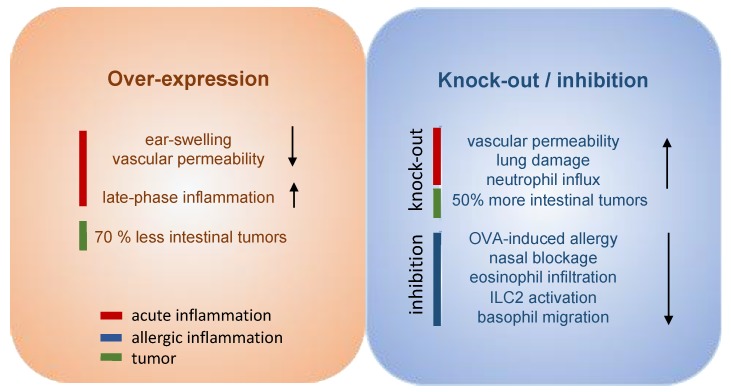Figure 3.
Experimental overexpression, inhibition and knock-out of hPGDS differentially modulates acute and chronic inflammation. Overexpression of transgenic hPGDS in mice resulted in reduced ear swelling and vascular permeability in the acute phase of inflammation, however, it exacerbated leukocyte influx in the late phase; In the same model, hPGDS knock-out potentiated vascular extravasation during acute skin inflammation [12]. Neutrophil influx and lung damage was more prominent in hPGDS knock-out mice [14]. In contrast, hPGDS inhibition proved to be beneficial in experimental models of allergic inflammation [28,119,120]. Interestingly, hPGDS over-expression was able to reduce the number of intestinal tumors, while hPGDS knock-out showed the opposite effect [27].

